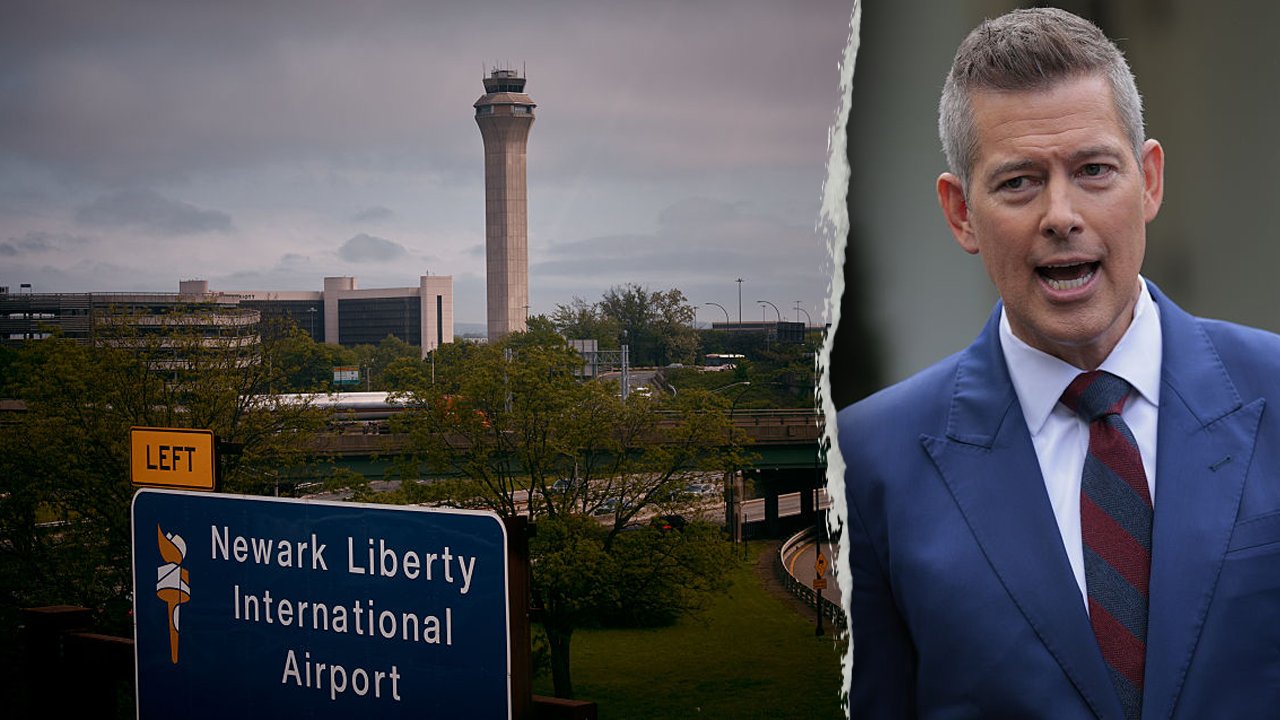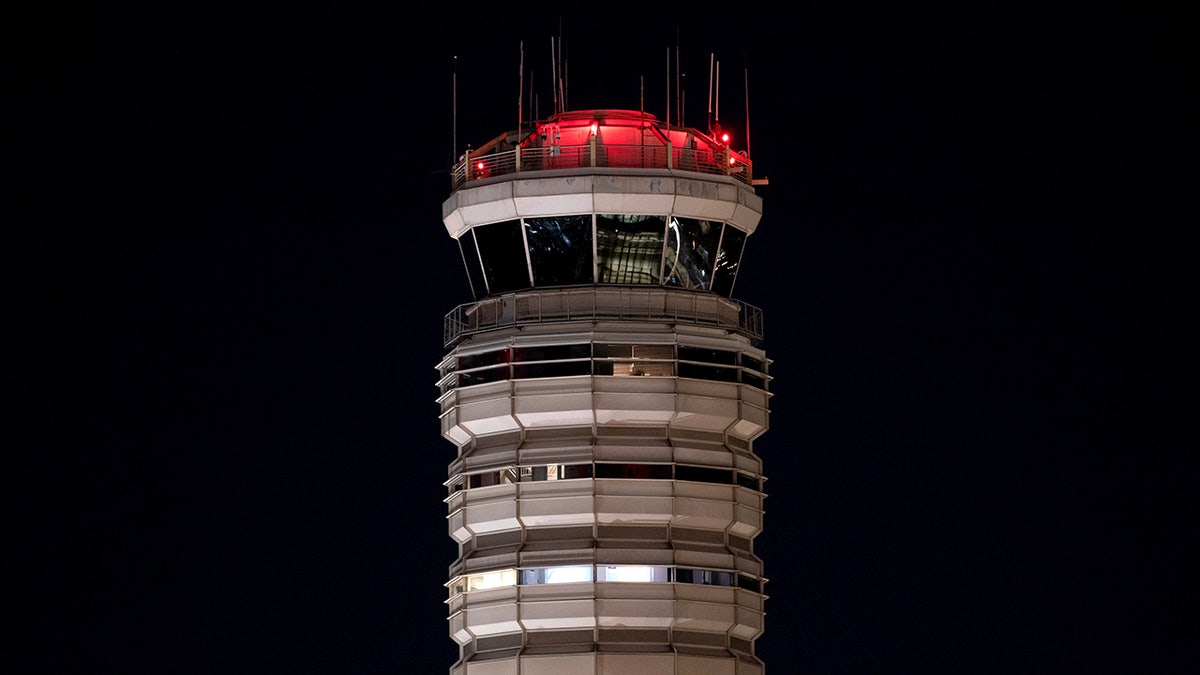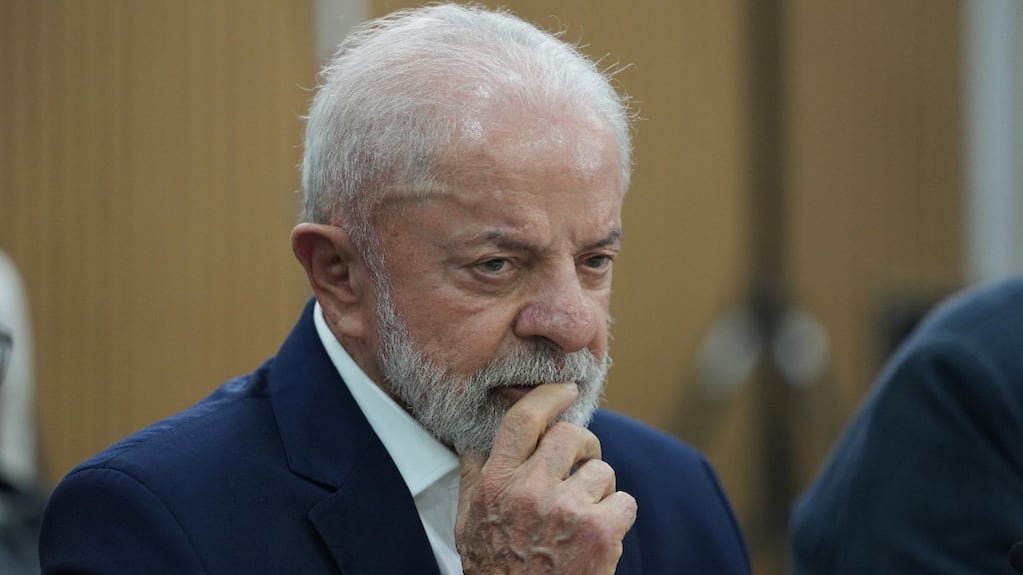INTERNACIONAL
Lawmakers react to Newark airport chaos: ‘Your family deserves to know you’ll be safe’

Lawmakers spoke out to Fox News Digital on Tuesday as chaos ensued at one of the nation’s busiest airports.
«Our team has reached out to the FAA to get answers on what steps they’re taking to resolve this situation,» said Sen. Andy Kim, a Democrat on the Senate Commerce, Science and Transportation Committee who also represents the Garden State, where the airport is located.
«Your family deserves to know that when you fly, you’ll be safe and you’ll get there on time. We’ll keep pressing to make sure it happens,» Kim said.
Across the aisle, West Virginia Sen. Shelley Moore Capito lamented the «very outdated» air traffic control system and spoke of the shortage of controllers.
DUFFY CONFIRMATION HEARING MARKED BY BIPARTISANSHIP, PLEDGE TO VISIT HELENE-DEVASTATED STATES
Newark Liberty International Airport and Sean Duffy (Getty)
«[That] makes for the turmoil we’re seeing at Newark,» Capito told Fox News Digital.
«I would like to see more accountability at FAA, which is why I have proposed to Commerce Committee Chairman Cruz’s team a public-facing dashboard to show FAA’s progress in updating their systems as well as hiring more controllers.»
While Democrats like DNC Chairman Ken Martin mocked USDOT Secretary Sean Duffy over the latest air travel-related crisis, Capito countered that the Wisconsin Republican recognizes the challenges America’s skies face.
«I support his efforts to finalize a plan that I hope to review soon,» she said.
NEW JERSEY DEMS SEEK TO BAR IMPRISONED BOB MENENDEZ FROM PUBLIC FUTURE OFFICE, AS GOP TARGETS HIS PENSION
Martin tweeted, «In case you missed it, Sean Duffy, there were near misses at DCA [Ronald Reagan-Washington National Airport in Crystal City, Va.], air traffic control screens are going dark at Newark, and America’s air travel system is falling apart under your and Donald Trump’s watch.
«Anyway, hope the tacos were good,» he added, apparently referring to a photo Duffy posted on X posing with steak tacos his wife prepared for dinner.
Late Tuesday, Sen. Cory Booker, D-N.J., a former Newark mayor, wrote a lengthy letter to Duffy saying that given «the serious consequences for our nation’s aviation system, it is critical that the United States Department of Transportation (USDOT) and the Federal Aviation Administration (FAA) take all necessary steps to identify and address the underlying causes of the ongoing flight disruptions.»
«I appreciate that the USDOT has already responded to this ongoing situation by identifying the importance of technology upgrades across the entire air traffic control system, and I am committed to supporting these efforts in Congress,» Booker wrote.
«However, I ask that you also immediately direct additional staff and resources in order to restore regular operations at EWR in the days ahead. This is of particular importance as the busy summer travel season approaches, which will put further pressure on EWR and the region’s airspace. Specifically, I request that you take additional steps to address the staffing shortages at the Philadelphia Terminal Radar Approach Control (TRACON) facility, which have contributed significantly to the repeated suspension and interruption of flight operations at EWR.»
Sen. Jerry Moran, R-Kan., another committee member, told Fox News Digital maintaining America’s «busiest and most advanced airspace in the world» requires a skilled workforce and dependable technology.
«The radar outages at Newark put air traffic controllers in an impossible situation, endangered incoming flights and demonstrated the urgent need for modernization of our systems,» said Moran, who along with senators John Hoeven, R-N.D., and Jeanne Shaheen, D-N.H., introduced the Air Traffic Control Workforce Development Act to bolster that workforce sector.
Sen. Cynthia Lummis, R-Wyo., told Fox News Digital later Tuesday that, as a «member of the Senate Transportation Committee, this is deeply concerning to me. The Biden administration spent years funding anything other than important upgrades and updates to outdated FAA technology.
«I think many of us will be asking questions about how this occurred and how we can work with Secretary Duffy and Chairman Cruz to fix it. The flying public deserves to know that they are safe and secure when flying in American airspace.»
On the Democratic side, Sen. Tammy Duckworth, D-Ill., said: «The ongoing situation at Newark Airport is yet another example of the tremendous strain our aviation system is under — something I’ve been raising the alarm on for years —and it further underscores the urgent need to invest in updated air traffic control systems and equipment, not cut FAA’s funding and workforce.

A fatal mid-air collision and subsequent near misses at Washington, D.C., area’s Reagan National Airport have added to concerns about the nation’s air-traffic control system. (Stefani Reynolds/Bloomberg via Getty Images)
CLICK HERE TO GET THE FOX NEWS APP
«As ranking member of the Aviation Subcommittee, I have questions about both Newark and the recent incident near the Pentagon. Congress needs answers. The safety of the flying public depends on it.»
In a lengthy statement obtained by Fox News and Fox Business, the FAA acknowledged that «several major airlines are facing ongoing flight disruptions at New Jersey’s Newark-Liberty International Airport as the facility contends with ongoing staffing and technology issues.»
«Last week, air traffic controllers at the Federal Aviation Administration (FAA) facility in Philadelphia lost radar and radio signals while directing planes to Newark for nearly 90 seconds, causing significant delays and flight cancellations that remain ongoing,» the statement continued.
«We are working to ensure the current telecommunications equipment is more reliable in the New York area by establishing a more resilient and redundant configuration with the local exchange carriers. In addition, we are updating our automation system to improve resiliency.»
Politics,New Jersey,Travel,Senate Democrats,House of Representatives Democrats,Republicans
INTERNACIONAL
Entrevista a un habitante de Gaza: «Hamas representa una pequeña parte del pueblo palestino»
INTERNACIONAL
Vindman’s call to release Trump-MBS transcript reopens old questions in US-Saudi relationship

NEWYou can now listen to Fox News articles!
Rep. Eugene Vindman, D-Va., is demanding that President Donald Trump release a 2019 call with Saudi Crown Prince Mohammed bin Salman, saying the American people «deserve to know what was said» in the aftermath of Jamal Khashoggi’s murder.
Vindman, a retired Army colonel who once served on Trump’s National Security Council, said the call was one of two that deeply concerned him — the other being the 2019 conversation with Ukrainian President Volodymyr Zelenskyy that triggered Trump’s first impeachment.
Standing beside Hanan Elatr Khashoggi, the slain journalist’s widow, Vindman said Trump «sidelined his own intelligence community to shield a foreign leader» and that transparency is owed to both the Khashoggi family and the country.
«The Khashoggi family and the American people deserve to know what was said on that call,» Vindman said Friday. «Our intelligence agencies concluded that Crown Prince Mohammed bin Salman ordered the murder of Mr. Khashoggi’s husband. When the president sidelined his own intelligence community to shield a foreign leader, America’s credibility was at stake.»
Rep. Eugene Vindman demands 2019 Saudi call transcripts be released. (Evelyn Hockstein/Reuters)
TRUMP SECURES RELEASE OF AMERICAN TRAPPED IN SAUDI ARABIA FOR YEARS OVER ONLINE POSTS
Vindman’s name already is polarizing in Trump-era politics.
He and his twin brother, Lt. Col. Alexander Vindman, became central figures in the first impeachment attempt against Trump, when their internal reporting of Trump’s Ukraine call led to accusations from conservatives that they had undermined an elected president. To Trump’s allies, Eugene Vindman’s demand to release the 2019 Saudi call feels like a replay of that fight — another attempt by a former National Security Council insider to damage the president under the banner of transparency.
Still, his comments land at a revealing moment. Washington’s embrace of bin Salman underscores a familiar trade-off in U.S. foreign policy: strategic security and economic interests over accountability and human rights.

«Trump doesn’t give a fist pump. I grab that hand,» Trump told reporters Tuesday. «I don’t give a hell where that hand’s been — I grab that hand.» (Nathan Howard/Politico/Bloomberg via Getty Images)
Secretary of State Marco Rubio said: «The U.S.-Saudi friendship is now a partnership for the future. President Trump’s historic agreements with the Kingdom of Saudi Arabia, from defense to investment, will create quality jobs for Americans and will grow our economy. No virtue-signaling. No lecturing. Only results for the American people.»
White House relations
Trump’s latest visit with bin Salman brought sweeping defense and investment deals, even as questions over 9/11 and Khashoggi’s murder continue to test that balance. The United States granted Saudi Arabia major non-NATO ally status, formally elevating the kingdom’s defense and intelligence partnership with Washington and clearing the way for expedited arms sales and joint military programs.
Bin Salman also pledged nearly $1 trillion in new Saudi investments across U.S. industries, including infrastructure, artificial intelligence and clean energy. The commitments were announced alongside a Strategic Defense Agreement that includes purchases of F-35 fighter jets, roughly 300 Abrams tanks and new missile defense systems, as well as joint ventures to expand manufacturing inside Saudi Arabia.
Administration officials said the initiatives would create tens of thousands of American jobs and strengthen the U.S. industrial base.
During his appearance with Trump at the White House, reporters shouted questions about Saudi Arabia’s alleged role in the Sept. 11 attacks and the 2018 killing of Khashoggi at the Saudi consulate in Istanbul — marking a rare moment of public pressure on the crown prince, who typically avoids unscripted exchanges with the press.
Trump accused the press of trying to «embarrass» his guest, but the crown prince offered what sounded like regret for the killing of Khashoggi, even as he denied involvement.
«A lot of people didn’t like that gentleman that you’re talking about,» Trump said. «Whether you like him or don’t like him, things happen, but he knew nothing about it … We can leave it at that. You don’t have to embarrass our guest by asking a question like that.»
ABC reporter Mary Bruce had told bin Salman that U.S. intelligence determined he’d signed off on the killing and that 9/11 families were «furious» about his presence in the White House. «Why should Americans trust you?»
«It’s been painful for us in Saudi Arabia,» bin Salman said of the killing, calling it «a huge mistake.» «We’ve improved our system to be sure that nothing happens like that again,» he added.

Jamal Khashoggi, pictured above with his wife Hanan Elatr. (@hananelatr via X)
TRUMP DESIGNATES SAUDI ARABIA AS MAJOR NON-NATO ALLY DURING CROWN PRINCE WHITE HOUSE VISIT
A 2021 report by the Office of the Director of National Intelligence stated: «We assess that Saudi Arabia’s Crown Prince Mohammed bin Salman approved an operation in Istanbul, Turkey, to capture or kill Saudi journalist Jamal Khashoggi.»
Bin Salman has repeatedly denied approving the killing, though he said in 2019, «It happened under my watch, I take full responsibility as a leader.»
Sept. 11, 2001
The question of Saudi Arabia’s involvement in the Sept. 11, 2001, terrorist attacks remains one of the most sensitive and unresolved issues in the U.S.-Saudi relationship. While 15 of the 19 hijackers were Saudi nationals, the U.S. government has never concluded that the Saudi state or senior Saudi officials had prior knowledge of or directed the attacks.
Families of 9/11 victims condemned bin Salman after he invoked Usama bin Laden during his White House remarks, saying the al Qaeda leader used Saudi nationals to drive a wedge between Washington and Riyadh.
«We have to focus on reality,» the crown prince said. «Reality is that Usama bin Laden used Saudi people in that event for one main purpose: to destroy the American–Saudi relationship. That’s the purpose of 9/11.»
«The Saudi crown prince invoking Usama bin Laden this afternoon in the White House does not change the fact that a federal judge in New York ruled a few short months ago that Saudi Arabia must stand trial for its role in the 9/11 terrorist attacks that murdered 3,000 of our loved ones,» said Brett Eagleson, president of 9/11 Justice, a group representing victims’ families.
CLICK HERE TO DOWNLOAD THE FOX NEWS APP
In August 2025, U.S. District Judge George B. Daniels issued a landmark ruling bringing Saudi Arabia under U.S. federal jurisdiction for a 9/11 trial. The court found evidence of a network of Saudi officials inside the U.S. who allegedly provided logistical support to the hijackers, citing «prior planning» and «constant coordination.»
Among the materials described in the ruling was a drawing seized from a Saudi government operative showing an airplane with flight-path equations — evidence prosecutors said suggested advance knowledge of the attacks.
Saudi Arabia has denied any role, calling the allegations «categorically false.»
But for bin Salman, who came to Washington seeking to highlight new security and economic ties, the families’ sharp rebuke was a reminder that the 9/11 case still looms large in the public eye, even as the Trump administration deepens its partnership with Riyadh.
saudi arabia,mohammed bin salman,donald trump,joe biden,middle east foreign policy,foreign policy
INTERNACIONAL
La derecha avanza en la región: ¿puede haber un brusco giro ideológico en Chile, Colombia y Brasil?

El mapa ideológico de la región está girando a la derecha y más allá.
Tras el fin de 20 años de gobiernos de izquierda en Bolivia y la asunción del centroderechista Rodrigo Paz, ahora Chile se prepara para dar un viraje de 180 grados con el amplio favoritismo de José Antonio Kast en el balotaje del 14 de diciembre sobre la comunista Jeannette Jara.
Leé también: Uruguay sufre una epidemia de homicidios: crece la inseguridad vinculada al narcotráfico
Pero este giro ideológico puede ahondarse en el corto plazo y mucho más el año próximo, incluso en un bastión de la izquierda en Centroamérica.
Así, en Honduras, la derecha es favorita, de la mano del empresario Nasry Asfura, alias “Papi a la orden”, en las elecciones presidenciales del 30 de este mes en las que se elegirá a la sucesora de la izquierdista Xiomara Castro.
Además, en 2026 la derecha buscará profundizar aún más su avance en tres países del área que celebrarán elecciones presidenciales: Perú, Colombia y hasta Brasil, el último gran bastión de la izquierda democrática en Sudamérica.
Cómo está hoy el mapa ideológico de la región
La derecha, con sus distintas vertientes, revirtió el dominio de la izquierda en la región.
Sus mayores representantes son Javier Milei, en Argentina; Santiago Peña; en Paraguay; Rodrigo Paz, en Bolivia; Daniel Noboa, en Ecuador, y hasta el democristiano José Jeri, de Perú.
La derecha más dura tiene amplias o buenas posibilidades -según el caso- de llegar al poder en Perú, Colombia y hasta en Brasil, donde Luiz Lula da Silva se presenta como el dique de contención de la izquierda, junto al pragmático Yamandú Orsi en Uruguay, contra el fuerte avance de la ultraderecha en el área. Luiz Inacio Lula da Silva quiere otros cuatro años de gobierno (Foto: REUTERS/Adriano Machado)
El panorama en los seis países que tendrán elecciones de aquí a fines de 2026 se presenta muy favorable para la derecha:
- Honduras: los candidatos opositores Nasry Asfura, del Partido Nacional, y Salvador Nasralla, del Partido Liberal, son favoritos para ganar las elecciones del 30 de este mes sobre la postulante oficialista de izquierda Rixi Moncada. Nasralla prometió que, de llegar a la presidencia, romperá relaciones con Venezuela
- Chile: el balotaje del 14 de diciembre tiene como favorito al ultraderechista José Antonio Kast, del Partido Republicano, sobre su rival oficialista Jeanette Jara, afiliada al Partido Comunista. “Kast ya ganó”, dijo a TN la analista chilena Marta Lagos, fundadora de la consultora Latinobarómetro y la encuestadora MORI Chile.

Jose Antonio Kast es favorito para la segunda vuelta de Chile (Foto: REUTERS/Rodrigo Garrido)
- Costa Rica: elegirá al sucesor del conservador Rodrigo Chávez el 1 de febrero. La candidata oficialista del Partido Pueblo Soberano (PPS), Laura Fernández, es la favorita de todas las encuestas.
- Perú: las elecciones se celebrarán el 12 de abril. Hoy, los mayores favoritos son el ultraderechista exalcalde de Lima Rafael López-Aliaga, apodado “Porki”, y la derechista Keiko Fujimori, hija del fallecido expresidente devenido en dictador Alberto Fujimori. Si bien Perú es conocido como el país de los “outsiders”, se espera un giro a la derecha tras el fracaso del izquierdista Pedro Castillo y de su vice y sucesora Dina Boluarte, ambos destituidos por el Congreso.
Leé también: A días de cumplir 80, Lula da Silva confirmó que buscará la reelección para asumir su cuarto mandato en Brasil
- Colombia: las elecciones se realizarán el 31 de mayo. El presidente Gustavo Petro enfrenta una fuerte impopularidad y la derecha aspira a volver al poder. “Aquí también se está dando ese crecimiento del enganche de gente de todos los niveles sociales” a la ultraderecha, dijo a TN el consultor argentino Ángel Beccassino, considerado un verdadero gurú de las estrategias políticas en el país. Un dirigente emergente es el abogado Abelardo de la Espriella, alias “El Tigre”. “Propone desde abandonar Naciones Unidas porque es un nido de izquierdistas, hasta ‘arrancarle las tripas´a los de izquierda», dijo el analista. Según Beccassino, “la derecha ultra estará en la segunda vuelta del año próximo” frente a un candidato de centroizquierda.
- Brasil: los comicios están convocados para el 4 de octubre del año próximo. Lula, a los 80 años, buscará la reelección frente a una derecha radical en crisis tras la condena a 27 años de prisión por golpismo contra Jair Bolsonaro. Pero pocos dudas del poder real del bolsonarismo. “Creo que seguirá siendo muy competitivo”, dijo a TN el analista Antonio Lavareda, presidente honorario de la Asociación Brasileña de Investigadores Electorales. La consultora Datrix reveló que en la dura lucha por la sucesión entre los hijos del expresidente, el senador Flavio Bolsonaro le está ganando la batalla a Eduardo Bolsonaro. Pero el gran favorito es Tarcisio de Freitas, fiel aliado del exmandatario y actual gobernador de San Pablo, que le ganaría a Lula en un eventual balotaje, según varias encuestas.
Leé también: Se Acabó la Fiesta, el nuevo partido antinmigrante que creó un diputado español y que corre por derecha a Vox
Desde la Casa Rosada ven este panorama como “esperanzador” para la política exterior argentina de alineamiento total con la Casa Blanca y su ofensiva contra la Venezuela de Nicolás Maduro, cada vez más aislada en la región,
Javier Milei quiere ahondar, en la segunda etapa de su gobierno, “en el ancla geopolítica” del modelo ideológico libertario. A juicio del presidente, EE.UU. necesita un “aliado firme” en la región para “ayudarle a ordenar un continente descarriado” por izquierda.
Jose Antonio Kast, Sumario, Lula Da Silva

 POLITICA2 días ago
POLITICA2 días agoTras la orden de decomiso de los bienes de CFK, la Justicia evalúa avanzar sobre el departamento de San José 1111

 POLITICA2 días ago
POLITICA2 días agoJavier Milei sobre las coimas en la ANDIS: “Hay mucha mala intención política”

 ECONOMIA1 día ago
ECONOMIA1 día agoEmpleadas domésticas: con aumento confirmado, cuánto cobrarán en diciembre






























